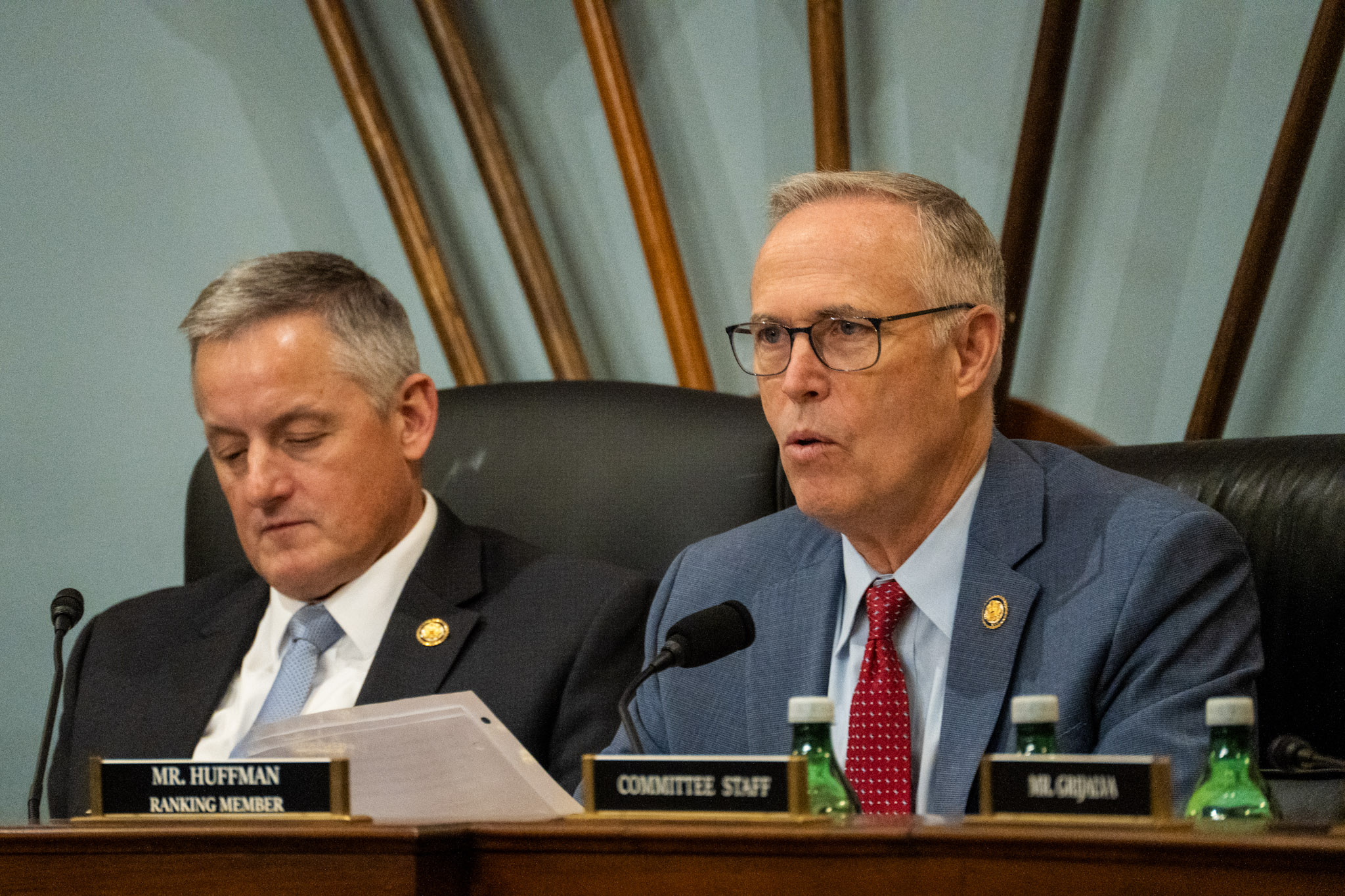Indianz.Com > News > Republicans forced to defend record on Indian issues at start of new Congress
Republicans forced to defend record on Indian issues at start of new Congress
Thursday, January 23, 2025
Indianz.Com
With their party now in control of the U.S. Congress, Republicans are defending their record on Indian issues after Democrats sought changes to the rules on a key legislative committee.
At the first meeting of the House Committee on Natural Resources on Wednesday, Democrats sought to ensure that tribal governments are consulted on issues affecting their nations. They also sought assurances that witnesses from Indian Country and remote areas would be able to testify virtually before the panel.
“Democrats will be focused on standing up for all families and working people, including Indigenous communities,” said Rep. Jared Huffman (D-California), who is the highest-ranking Democratic member of the panel.
But Republicans on the committee, including the chairman, rejected the Democratic efforts. They insisted that they have always listened to tribes, citing their work in the prior session of Congress, during which they also had control of the U.S. House of Representatives.
“In fact, I would assume that the committee chairs will be inviting a variety of tribal members to come and testify on those matters that are important to them, depending upon the issue at hand,” said Rep. Harriet Hageman (R-Wyoming), who most recently served as chair of the House Subcommittee on Indian and Insular Affairs and presided over numerous hearings with Indian Country witnesses.
“I take offense at anyone who might imply that there is any sort of racism associated with it on this side of the aisle,” said Hageman, responding to Democrats who had talked about the colonization and dispossession of Indian lands — not about race or racism.
According to Westerman, the Subcommittee on Indian and Insular Affairs held 16 tribal-related hearings during the last legislative session. And of the 23 tribal bills that passed through the committee, he said six were signed into law. “These were bills supported by this committee in a bipartisan manner,” said Westerman. According to the committee’s rules, the jurisdiction of the House Subcommittee on Indian and Insular Affairs is as follows:Your Climate and Natural Resource warriors for the 119th Congress on @NRDems!
— Rep. Melanie Stansbury (@Rep_Stansbury) January 22, 2025
Excited to get to work on Water and Public Lands and work with Tribal Nations! pic.twitter.com/nu1rcMPqQz
(1) All matters related to the Federal trust responsibility to Native Americans and the
sovereignty of Native Americans.
(2) Measures relating to the welfare of Native Americans, including management of
Indian lands in general and special measures relating to claims that are paid out of Indian funds.
(3) All matters regarding Native Alaskans.
(4) All matters regarding the relations of the United States with Native Americans and
Native American tribes, including special oversight functions under House Rule X.
(5) All matters regarding Native Hawaiians.
(6) All matters regarding insular areas of the United States.
(7) All measures or matters regarding the Freely Associated States.
(8) General and continuing oversight and investigative authority over activities, policies,
and programs within the jurisdiction of the Subcommittee.

Budget and Spending Review
Federal Barriers to Economic Development on Indian Lands
Tribal Forestry
Natural Resources Management
Land Fractionation
Alaska Natives
Law Enforcement in Indian Country
Transnational Crime in Indian Country
Indian Health Care / Indian Health Service (IHS)
Indian Education
The panel’s work also includes the House Subcommittee on Water, Wildlife and Fisheries. According to the oversight plan, its agenda includes the following:
Colorado River Basin
Indian Water Rights Settlements
Following the organizational meeting on Wednesday, the committee’s first hearing of the 119th Congress was held by the Subcommittee on Water, Wildlife and Fisheries. The subcommittee is now chaired by Hageman.
House Committee on Natural Resources Notice
Full Committee Meeting — Consideration of Committee Rules, Authorization and Oversight Plan, and Staff Resolution (January 22, 2025)
Related Stories
Search
Filed Under
Tags
More Headlines
Press Release: National Museum of the American Indian hosts Native art market
AUDIO: Sea Lion Predation in the Pacific Northwest
Native America Calling: Tribal colleges see an uncertain federal funding road ahead
Native America Calling: Short films taking on big stories
Native America Calling: Advocates push back against new obstacles to Missing and Murdered Indigenous Relatives momentum
Native America Calling: For all its promise, AI is a potential threat to culture
NAFOA: 5 Things You Need to Know this Week (November 24, 2025)
Chuck Hoskin: Cherokee Nation invests in rural transportation
Native America Calling: Native candidates make strides in local elections
National Congress of American Indians returns incumbents and welcomes newcomers to leadership
National Congress of American Indians chooses leadership at big convention
‘Not voting is still a vote’: Native turnout drops amid changes in political winds
Native America Calling: Indigenous voices speak up, but have little clout at COP30
‘It’s bull****’: Indian Country confronts challenges at largest inter-tribal conference
Native America Calling: The constant burden on tribal hunters to justify their treaty rights
More Headlines
AUDIO: Sea Lion Predation in the Pacific Northwest
Native America Calling: Tribal colleges see an uncertain federal funding road ahead
Native America Calling: Short films taking on big stories
Native America Calling: Advocates push back against new obstacles to Missing and Murdered Indigenous Relatives momentum
Native America Calling: For all its promise, AI is a potential threat to culture
NAFOA: 5 Things You Need to Know this Week (November 24, 2025)
Chuck Hoskin: Cherokee Nation invests in rural transportation
Native America Calling: Native candidates make strides in local elections
National Congress of American Indians returns incumbents and welcomes newcomers to leadership
National Congress of American Indians chooses leadership at big convention
‘Not voting is still a vote’: Native turnout drops amid changes in political winds
Native America Calling: Indigenous voices speak up, but have little clout at COP30
‘It’s bull****’: Indian Country confronts challenges at largest inter-tribal conference
Native America Calling: The constant burden on tribal hunters to justify their treaty rights
More Headlines

